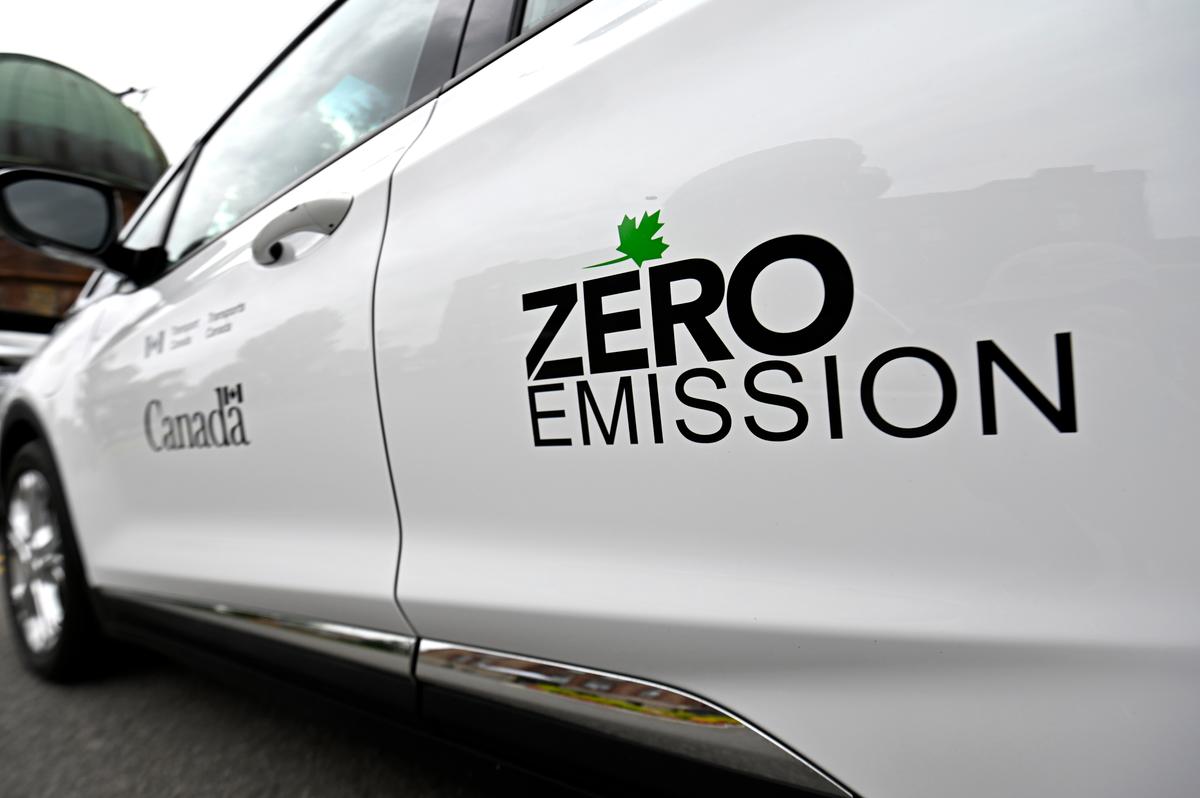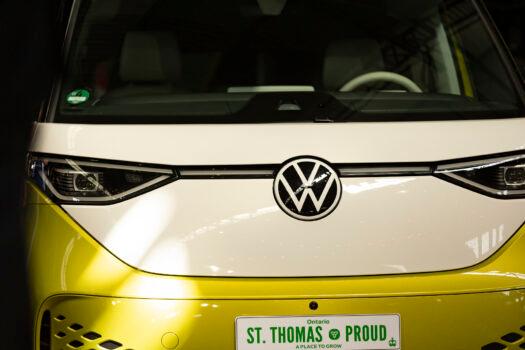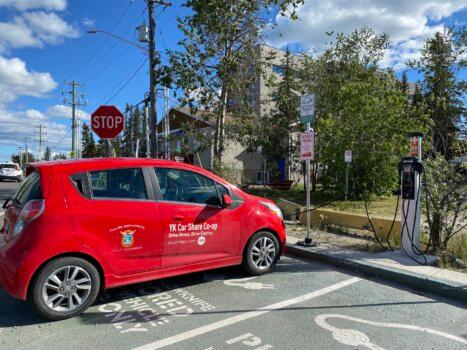
Yes, it is still transitioning and it remains difficult. Yet I completely agree with the policy direction entailed. The truth is that oil is a super high quality source of energy best used sparingly in the first place. the EV actually permits use of all sorts of energy sources since all energy sources are best used to produce electrical power which is then highly transportable. The implied battery infrastructure now emerging allows real time energy storage.
That build out needs a high demand energy market as well. just that will provide most of our energy for mobility.
I want to say that a real portion of the automotive market is already well served by the EV. It is also obvious to me that a major proportion of long haul trucking will also be well served. this is where been bigger really works out. The personal vehicle market suffers from a lot excess weight demand that is not readily helped. it was really a poor first choice but it got us the battery that makes long haul work unless we are been lied to.


In-Depth: What It Really Costs to Own an EV
Ottawa and Washington are aiming to eliminate new gas-powered cars from being sold, but consumer demand for EVs is weak currently.
A Chevrolet Bolt EV is seen at an event promoting the Greening Government Fund, in Ottawa on June 27, 2023. (The Canadian Press/Justin Tang)
11/1/2023Updated:
https://www.theepochtimes.com/world/in-depth-what-it-really-costs-to-own-an-ev-5521132?
While both Ottawa and Washington are aiming to eventually eliminate new gas-powered cars from being sold, consumer demand for electric vehicles (EVs) is currently languishing and the true cost to the consumer of an EV is a subject of debate.
“EVs have consistently failed to compete with combustion vehicles on performance and cost, and failed to win broad consumer support despite oceans of government subsidies for manufacturers and buyers alike," said an Oct. 11 Fraser Institute op-ed.
Even with strikes plaguing the industry, “the bigger story in autos is the EV slowdown,” RBC Capital Markets global auto analyst Tom Narayan told CNBC on Oct. 30.
He said high interest rates affect affordability and EV pricing has to fall, adding that consumers also prefer bigger SUVs and are choosing hybrids over EVs.
An Oct. 31 Fraser Institute report said up to 90 percent of U.S. EV purchase incentives have flowed to the wealthiest 20 percent of households, noting, “To date, most EV buyers in the U.S. and Canada have had incomes well above the respective national average.”
From Natural Resources Canada to RateHub.ca to CleanEnergyCanada.org, Canadians are led to believe that owning an EV is cheaper or more efficient than its gas-powered counterpart. But these analyses fail to consider the extraordinary government support and regulation in place to engineer a monumental transition.
In an Oct. 25 Texas Public Policy Foundation (TPPF) study titled “Overcharged Expectations: Unmasking the True Costs of Electric Vehicles,” co-authors Brent Bennett and Jason Isaac say no one has tried to calculate the full financial benefit of direct subsidies, regulatory credits, and subsidized infrastructure that make EVs viable.
‘Basic Economic Realities’
“Electricity is a long way from becoming a cost-effective transportation fuel compared to gasoline,” the TPPF co-authors say.
They calculate that the true cost of fuelling a 2021 EV, including excess charging costs and subsidies, is US$17.33 per gallon of gasoline. Gas prices in the United States can be found for less than US$4 a gallon currently.
The TPPF study showed that, in the United States, an average model year 2021 EV would cost US$48,698 more to own over a 10-year period without US$22 billion in government support to EV manufacturers and owners.
“The lesson to be learned from this study is that markets, not government, drive innovation and efficiency,” says the study.
A J.D. Power survey of Canadians in June found that just one in three new car consumers are likely to consider an EV in the next two years.

Plans to build a Volkswagen electric vehicle battery plant in St. Thomas, Ont., are announced at the Elgin County Railway Museum in St. Thomas on April 21, 2023. (The Canadian Press/Tara Walton)
“Without increased and sustained government favours, EVs will remain more expensive than ICEVs [internal combustion engine vehicles] for many years to come. Hence why, even with these subsidies, EVs have been challenging for dealers to sell,” the TPPF report said.
The TPPF co-authors say that “basic economic realities” show that the Biden administration’s objective of achieving 100 percent EVs by 2040 “will never become a reality."
Canadian EV Mandate
Ottawa is mandating that by 2035, all new light-duty vehicles sold, such as cars, sport-utility vehicles, and pickup trucks, must be zero-emission vehicles (ZEVs). ZEVs include battery-electric, plug-in hybrid electric, and hydrogen fuel cell EVs.
Ottawa’s total incentives for its ZEV purchase program, to be funded until March 2025, is $2.3 billion. It provides up to $5,000 for eligible light-duty ZEVs—37 models as of Oct. 2022. In addition, there are provincial purchase incentives for ZEVs.
The feds are also aiming to have 84,500 chargers across Canada by 2029. Ottawa said it would be investing $900 million to build these public charging infrastructure.
“The cost of infrastructure is similar in the U.S. and Canada, so, unless Canadian utilities are requiring EV owners to use smart chargers and charging them different rates, they are probably socializing up to US$12K in electric grid infrastructure costs per EV, just as U.S. utilities are,” the TPPF’s Brent Bennett told The Epoch Times.
Ottawa is also temporarily reducing income tax rates by 50 percent for businesses that make zero-emission technologies domestically.
The feds and Ontario signed off on production subsidies of up to $15 billion for Stellantis-LG Energy Solutions (LGES) in July, and up to $13 billion for Volkswagen in March.
It would take 20 years for the feds and Ontario to break even on those subsidies, the Parliamentary Budget Officer noted. His analysis did not include the interest charges on the additional public debt.
One of the reasons Ottawa is extending such subsidies is to compete with the U.S. Inflation Reduction Act (IRA)—a record-breaking US$369 billion investment in green technologies.
“The EV and battery subsidies in the Inflation Reduction Act will cost the U.S. hundreds of billions of dollars over the next decade and make the U.S. auto industry perpetually reliant on government handouts to survive. Canada should not copy that failure by trying to lure EV manufacturing with special subsidies,” Mr. Bennett said.
"Canada should instead cut taxes and regulations, avoid piling up government debt with subsidy programs, and let the private sector propel economic growth by developing its vast energy and mineral resources that the world—especially the half of the world that is energy poor—desperately needs,” he added.
Hidden Costs
The TPPF said that “indirect subsidies” from U.S. regulations like the Environmental Protection Agency’s greenhouse gas (GHG) emissions and federal corporate average fuel economy (CAFE) standards are “surprisingly large” and are being absorbed by buyers of gas-powered cars, or ICEVs.
“The CAFE and GHG mandates send a clear signal to automakers: Sell a requisite number of EVs or go bankrupt. Because EVs are still significantly more expensive to make than comparable ICEVs, direct credits to consumers are essential for automakers to price vehicles high enough to cover their costs while still attracting consumers,” Mr. Isaac and Mr. Bennett wrote.

Sparky the electric car, part of the YK Car Share Co-Op, at an electric vehicle charging station in Yellowknife, N.W.T., on July 25, 2022. (The Canadian Press/Emily Blake)
Mandating a car company to have zero-emission vehicles and to sell a certain number of EVs can act as a tax on gas-powered cars, the co-authors point out.
"Canada’s fuel economy regulations and zero-emission vehicle mandates are creating a subsidy for EVs, but that subsidy is not likely as large as it is in the U.S. because the U.S. is giving EVs almost seven times more regulatory credits than our laws say they should qualify for,” Mr. Bennett said.
Mr. Isaac and Mr. Bennett note in their study that “indirect subsidies” also include the avoidance of state and federal fuel taxes, which are used to fund road construction and maintenance. They thus argue that EV owners should be paying more than gas-powered car owners in fuel taxes given that EVs are heavier and put more stress on roads.
The Fraser Institute, in a September commentary, said the average citizen will bear the substantial cost of EV failures.
“Trudeau and Biden’s top-down commands, countering the laws of economics, are doomed to fail,” the think tank said regarding Ottawa’s and Washington’s attempts to pick winners and losers in consumer markets.
No comments:
Post a Comment